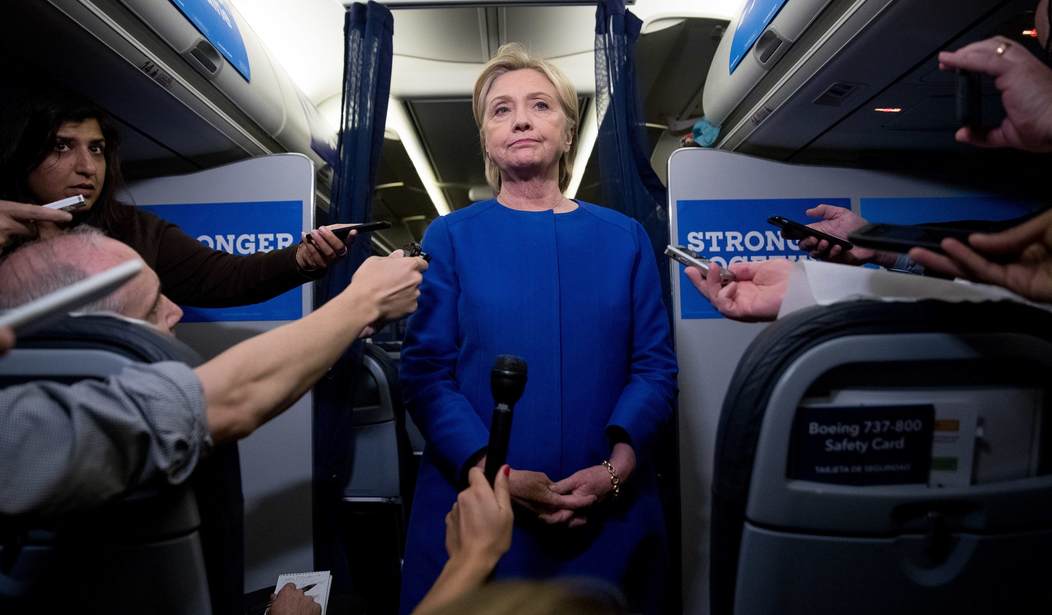WASHINGTON – Hillary Clinton’s greatest strength – foreign relations experience – proved to be her greatest liability in the 2016 presidential election, former White House chief strategist Steve Bannon said today, while arguing that the American public sought a new approach abroad.
While discussing foreign policy at the Hudson Institute, Bannon cited Clinton’s experience on the Senate Armed Services Committee, her time as secretary of State and her “vast knowledge” on the ins and outs of foreign affairs minutiae. At the same time, Bannon said, the American public – particularly the middle and working classes – rejected the status quo on American foreign policy.
“I think the working class and middle class people in this country are looking at the taxes we pay,” Bannon said. “They’re looking at the trillions of dollars that have been spent. They’re looking at the veterans who have come home with the PTSD; they’re horribly wounded. They’re looking at Section 60 over at Arlington National Cemetery.”
Bannon, executive chairman of Breitbart News, contrasted a “war of attrition” against the ISIS under the previous administration with a “war of annihilation” that President Trump promised during the 2016 election. According to Bannon, Trump, with the help of Bannon and key aides like Kellyanne Conway and Jared Kushner, wrote his inaugural address in which he promised to “eradicate” radical Islamic terrorism from the face of the Earth.
Though that promise is a “pretty big check to cash,” Bannon argued that the president has made good on it during his first nine months in office. Predicting the “physical deterioration” of ISIS under this administration, particularly the U.S.-backed seizure of the caliphate’s de facto capital Raqqa, a city in northern Syria, would have been laughable in 2016, Bannon said. The Syrian Democratic Forces began their offensive to take Raqqa last year.
“The whole world kind of backed off,” Bannon said of Raqqa, while arguing that Trump has stated his goals on ISIS in a blunt and plain manner that has appealed to the American middle and working classes.
Between the choices of Trump and Clinton, Bannon said it came down to who would be the better commander in chief in wartime.
During the discussion, Bannon argued that Trump is not an Islamophobe despite the fact that he has been attacked by opponents and human rights groups for his executive orders banning travel from several Muslim-majority nations. Bannon, when challenged on this assertion, pointed to the president’s speech in May at the Arab Islamic American Summit in Riyadh, where the president promised to work together with allies to “end the humanitarian crisis in Syria, eradicate ISIS and restore stability to the region.”
“There’s nobody in the United States that wants to be engaged in combat operations, special forces operations, drone operations” for multiple generations, Bannon said. “It’s just not where the American people are. It’s not the way our country was founded and formed.”
Bannon said that it’s “total nonsense” that Trump’s so-called America First approach to foreign policy has been described as “isolationist.” He countered that Trump simply sees the world differently in a “Jacksonian” view. He suggested speaking with allies in the region – Egypt, the United Arab Emirates and Saudi Arabia – to determine if Trump is an Islamophobe.
Bannon also said he is against the belief that the U.S. should be imposing a liberal democratic system in places where it does not fit. The U.S. should show the world how to execute American beliefs, and if they want to emulate them, they can emulate them, he said.









Join the conversation as a VIP Member